Today’s article & podcast episode is an interview with certified parenting coach Crystal Haitsma!
About Crystal
Crystal Haitsma is a Canadian homeschooling mother of four and a Certified Professional Life Coach. She works with parents to help improve their relationships with their kids, so they can enjoy parenting again. Her approach combines mindset, emotional processing, and connection-based parenting philosophies and focuses on healing our own relationships with us, so we can change generational patterns of parenting.
Connect with Crystal by listening to her podcast or following her for parenting tips & inspiration on Instagram: @the.parenting.coach.
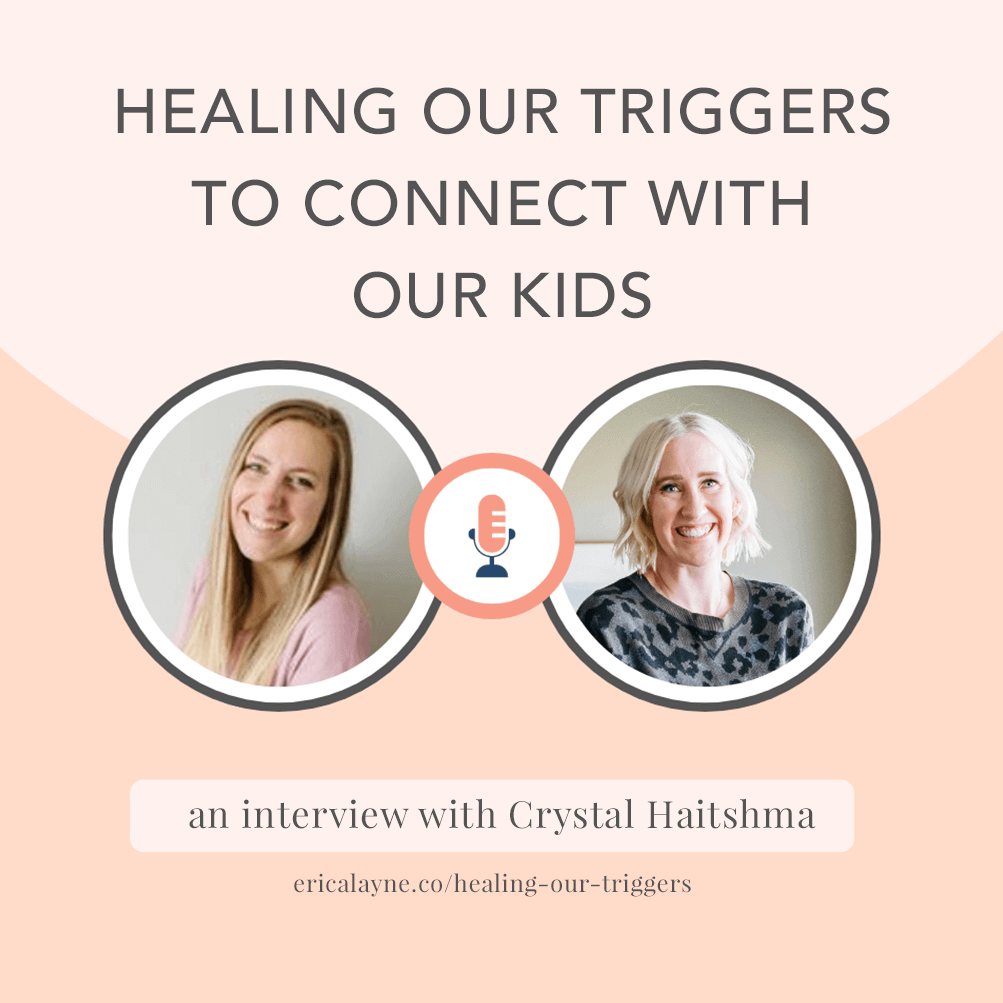
Our Conversation: Healing Your Triggers to Connect with Your Kids
Erica: If you were to come up to me and say, “Hey, let’s talk about parenting!” I’d be ALL IN. And I’d probably jump right into talking about my kids’ behaviors, my relationship with them, their relationships with each other… EXTERNAL things. But one of your main messages is that parenting starts INSIDE of us. I’d love to hear more about that.
Crystal: The reason I think this is so important is that in our relationship with anyone, our own relationship with ourselves is the most important one. The only power we ever have in relationship is the power in changing ourselves. When we get a more wholesome relationship with ourself, our parenting just naturally improves.
For example, let’s say my child keeps coming home from school and putting their backpack on the floor every day and I keep telling them every day to put their backpack up. Overtime, I might get frustrated and think my child doesn’t listen or something. But the important thoughts are the ones I’m thinking of myself in those moments. Like, “If I had taught him better, he wouldn’t have this problem.” Or, “If I did a better job at parenting him, he would hang his backpack up.” And, “Maybe I’ve been too kind or too unkind or not consistent enough.” So it is in changing how I view myself that changes how I view the relationship with my kids.
Erica: So how could that internal dialogue look if you’re talking to yourself more positively or if your thoughts are kinder to yourself?
Crystal: That’s a really good question, because it’s actually not about going to the positive thoughts. The solution is actually to find compassion, acceptance, and empathy for ourselves right where we are at.
Erica: Has this always come naturally to you, or was there a time when you made a shift in your parenting?
Crystal: No! It has come so unnaturally. Parenting was the hardest thing ever for me for about the first decade! In my mind I was doing terrible at it. I wasn’t enjoying myself at all. Internally, I felt like I was failure and wasn’t cut out for raising kids. And outwardly, that looked like I was just mad at my kids all the time.
Yesterday I was outside playing with my kids and the sun was shining and I was watching them run across bales of hay and I just thought to myself, I enjoy my kids SO much. And then I felt sad for everyone who isn’t in this place. Because I remember so well what that felt like.
For me, it took feeling like I was hitting rock bottom. I have some kids that are neurodivergent. And I was struggling a lot with one particular child’s behaviors to the point where I knew I needed to get some help with him. And through the process, what I started to notice was that it wasn’t actually a him problem. I really thought everything was him and his meltdowns and behaviors. But overtime, I started to notice how my energy was influencing that relationship in ways that were not helpful. It was a several years long process, but he is doing amazing now. We have a great relationship and his ability to self-regulate and have regular conversations are amazing for someone with his diagnosis.
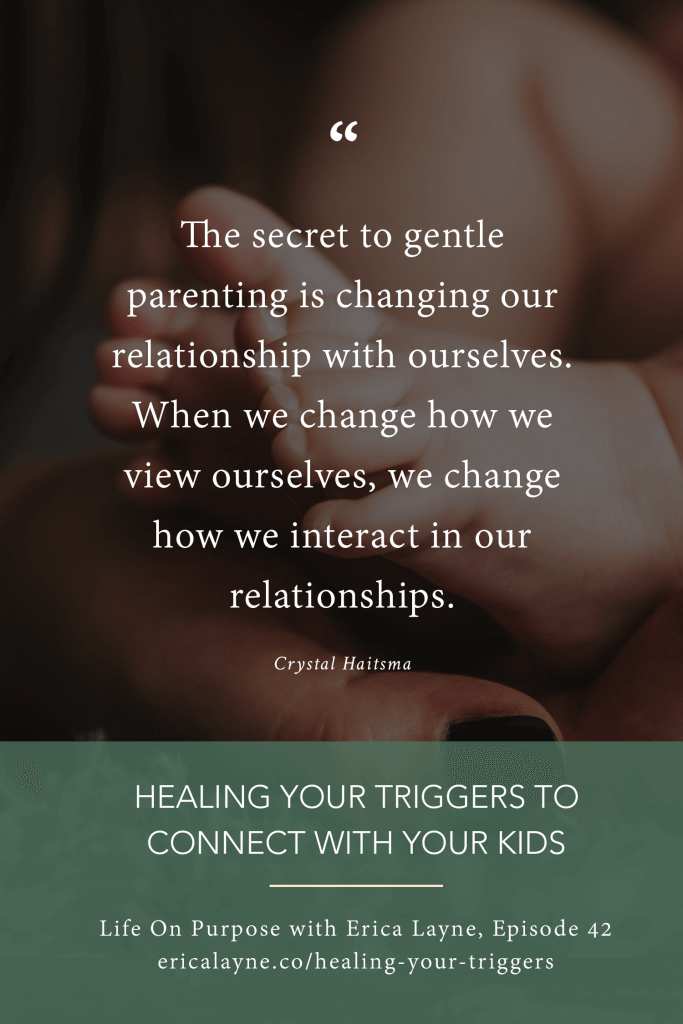
Erica: Such a beautiful testament to this idea that we can shift within ourselves and it shifts things outside of ourselves. So since you’ve been muddling through this work, what other changes have you seen in yourself and your family?
Crystal: I was on a walk the other day, and was asking myself this same question. I know my kids’ behaviors have improved, for sure. They still have meltdowns and emotions, but they are a lot less intense and I know how to handle them better and can help them through them more, instead of being reactive or withdrawn like I used to be. Another one that I noticed recently is that sibling rivalry is almost nonexistent now. My kids pretty much never fight with one another, which is kind of amazing!
The way I treat myself and think about myself has changed. Like I said before, I love being with my kids now. But I also enjoy time with just myself now too. I don’t feel guilty when I am not with them. I know I need it, and that I’m a person of worth and value whose needs also need to be met. And when I have time alone, I enjoy them more and am a better mom.
I should mention that the parenting approach I use is called Connection Based Parenting, sometimes called conscious parenting or attachment parenting. It was through connected parenting that our relationships started to shift.
Erica: How would you sum up Connection Based Parenting?
Crystal: There are two other main parenting styles, Authoritarian and Permissive. Permissive is a style that has little to no boundaries and lets children basically have whatever they want. Authoritarian is what many of us grew up with. It uses rewards/praise, punishments, yelling, grounding, coercion to manipulate or change behaviors in hopes that the more we take away or give to will persuade behavior changes. In both authoritarian and permissive, there isn’t a focus on relationship or safety. What humans long for most is connection, safety, and security. Connection based parenting falls between these styles. It still has boundaries, guidance, teaching, but the focus is on relationship, connection, and compassion.
Erica: You often talk about healing our triggers so we can better connect with our people. What do you mean by triggers, and can you give us some examples?
Crystal: A trigger is any time you feel emotionally charged. It doesn’t have to be huge, just some emotional energy or strength coming up in our body. We might feel triggered from something our husband says or something we saw on social media. In the moment when we feel this strong emotional charge bubbling up, the real trigger is this: What am I thinking about myself?
I believe triggers are only triggers because it is connected to shame. Until we can dig into what those triggers are and what the root cause is, we can’t heal from them.
Erica: That dips into what was going to be my next question about how we heal our triggers. It sounds like the first step is to just notice them. So when that emotion bubbles up, you just notice it. And then maybe ask yourself what am I making this external thing mean about me. And then start to look for the shame? Any other thoughts?
Crystal: Yeah, let me kind of walk through an example. So let’s say my child is back talking or yelling at me and I’m starting to yell back or withdraw. So yes, the first thing I’m going to do is notice. Yeah, okay, I’m feeling triggered. And then I might go to another room if I need to calm down. And I can ask myself, “What was happening in that moment?” Oftentimes, one of the thoughts that will come up for us is, “They were being disrespectful.” So then I’ll dig into that. What is disrespect? Why do they need to be respectful? Because children should respect their elders? What does it mean about me if my child disrespects me? And as I work through this, I might ask myself, “Wait a second…do I even believe that children should always respect their elders? Do I believe that kids should always listen and not question? That they shouldn’t have strong emotions and should know how to control them as soon as they are born?”
Not every annoying behavior or thought warrants this deep dive. But when we feel triggered, it is important to ask ourselves, “What about that behavior bothers me SO much?” And to dig for the thoughts or beliefs that are stirring this up. And to ask ourselves if they are even true.
We can have compassion for ourselves in this journey if we recognize we have allowed other people’s thoughts or beliefs to govern our own.
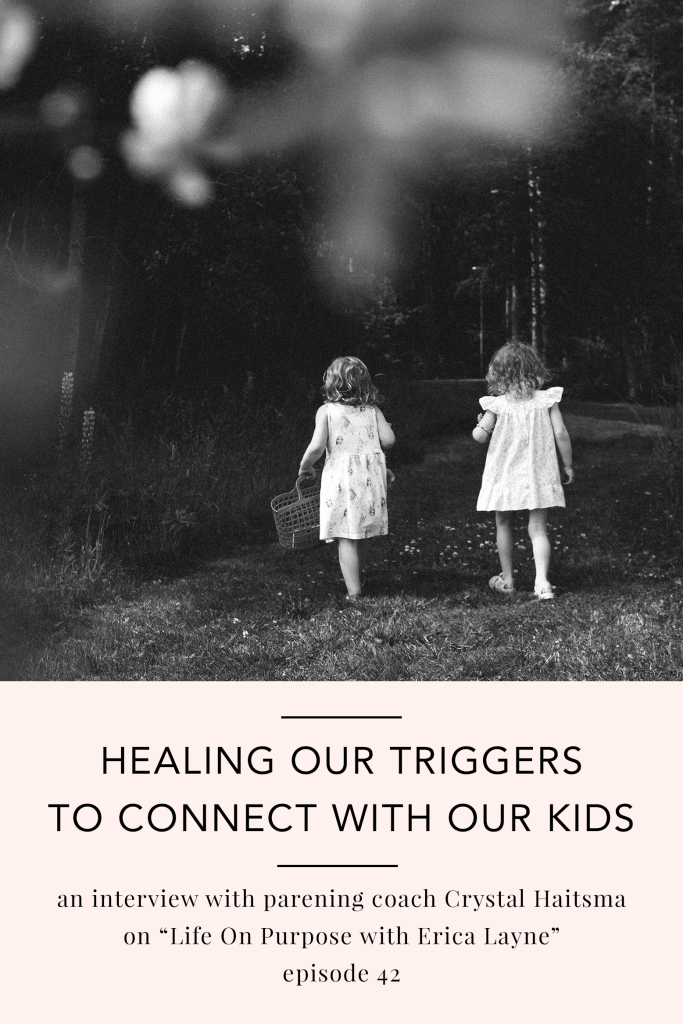
Crystal: Another thing I want to mention is that, a lot of time we have to do body work. Excavating and digging into our thoughts and finding where our shame is coming from can be helpful, but sometimes it can send us into what I call the Shame Spin Cycle where our thoughts spiral into all the ways we feel we are not enough.
But another important piece of healing and moving through a trigger, is to notice where in our body we feel it. Literally if it had a color, shape, texture, all of those things, where would it be? Shame often shows up in our stomach or up between our chest and neck area. Lots of times it is heavy and usually it is hot and it is either red, orange, grey, or black. As you allow yourself to sit with the actual feeling in your body and describe it to yourself, it will often dissipate. I do a lot of guided meditation in my practice because getting into your body is what deeply heals, beyond just noticing it in our brain.
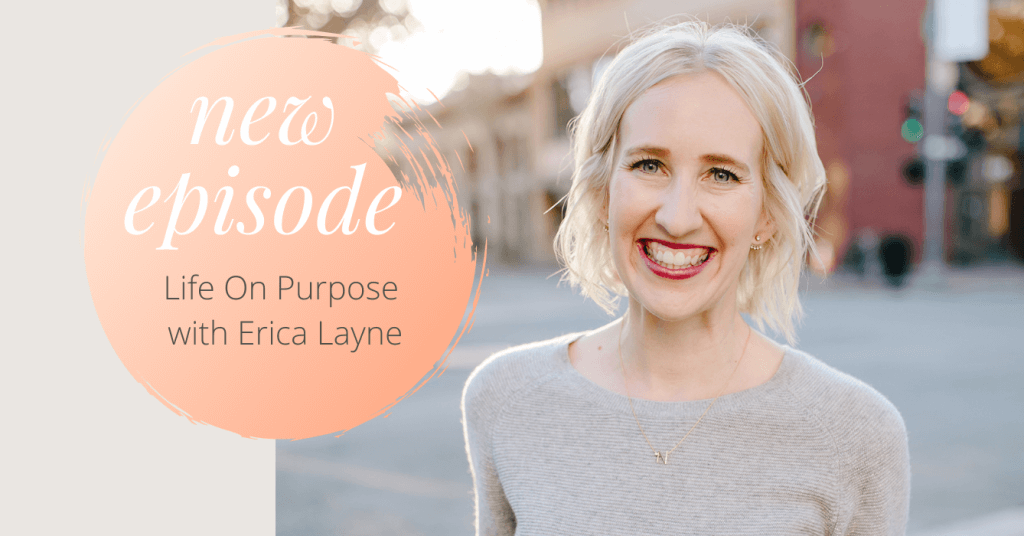
More from Episode 42 of “Life On Purpose with Erica Layne”
Here’s what else you can hear in the latest episode of the podcast!
- Self-Care Spotlight: A segment where I remind you not to neglect the person you spend all of your time with—you! Today I offer you a useful question to ask yourself this holiday season when requests and potential commitments come your way.
- Unwind: Join my 7-day challenge called UNWIND at ericalayne.co/UNWIND. For 7 days, you’ll put your devices away 30 minutes before bed, and you’ll fill up your SOUL.
Listen to the full episode in your favorite podcast app, or in the audio player below! And be sure to hit follow!
Apple Podcasts | Google Podcasts | Spotify | Overcast | Stitcher
Show produced by Astronomic Audio
xo!


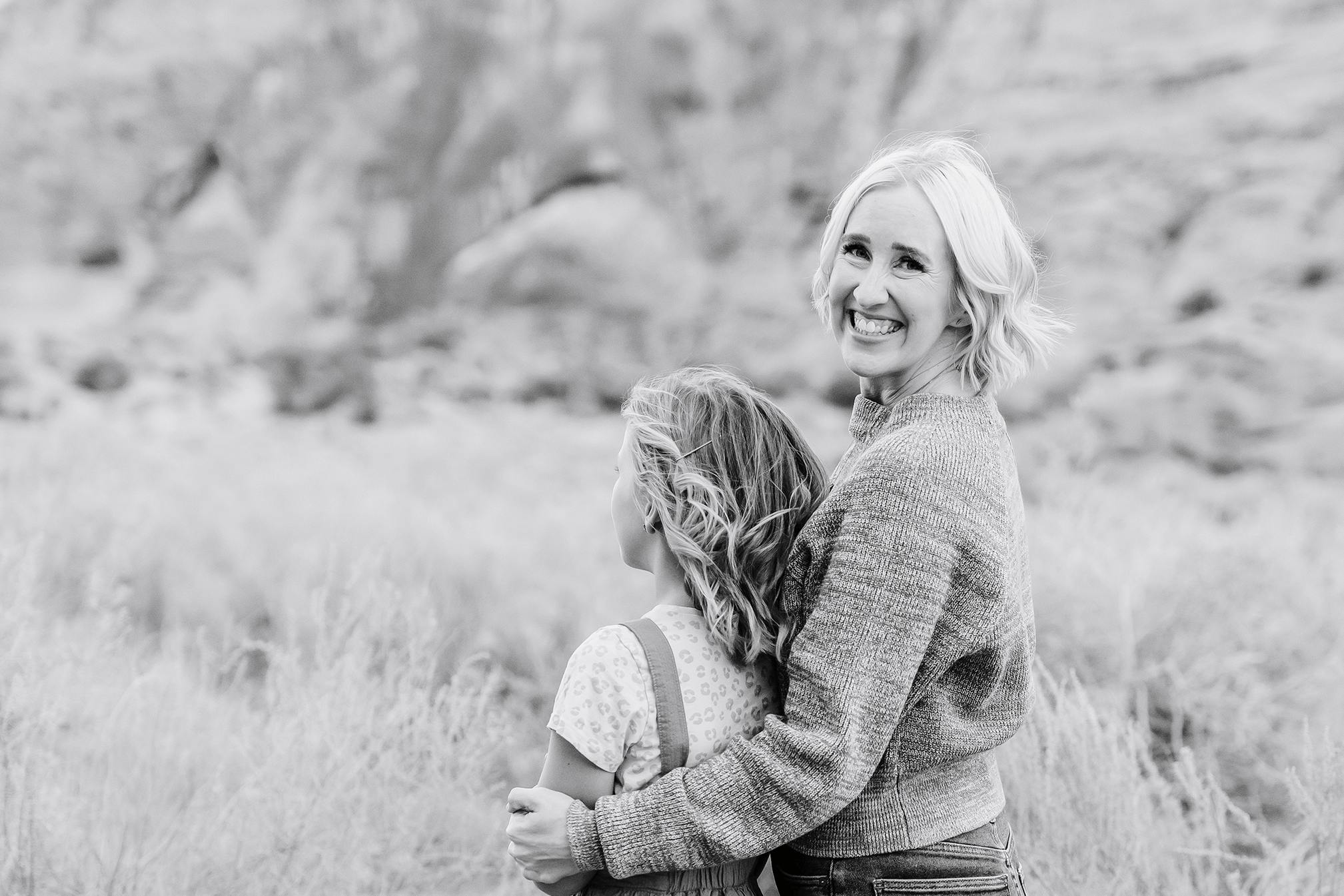
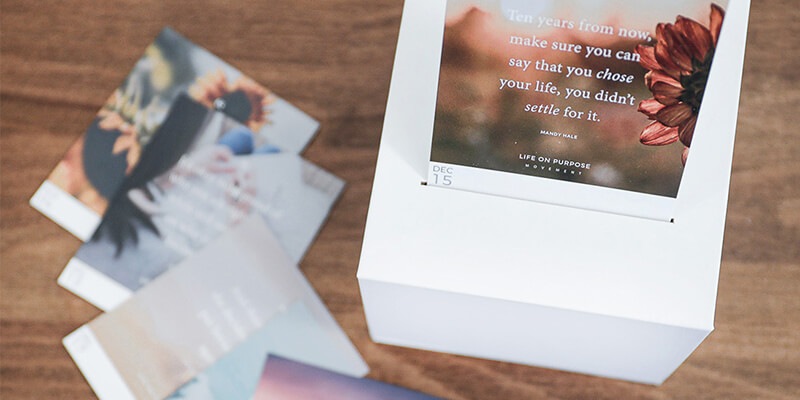
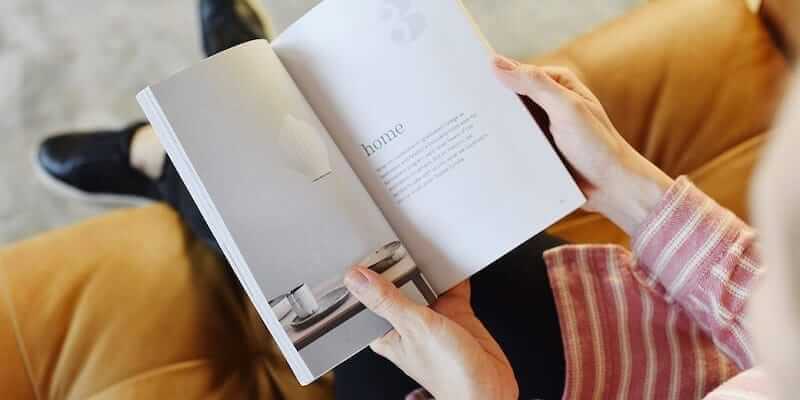
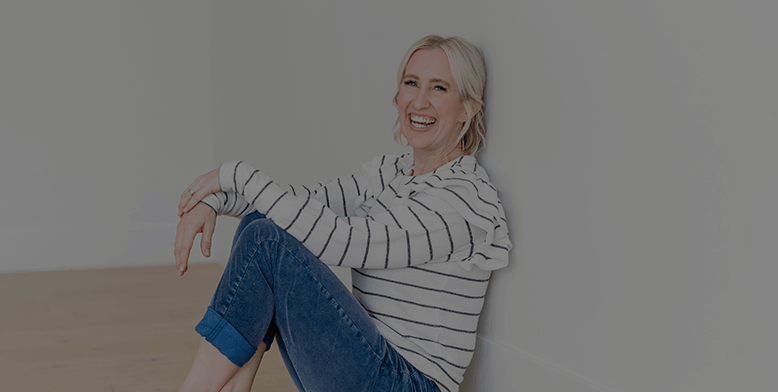
I notice that, when my feelings about my children’s behaviours are really spinning out of control, it’s because I am thinking of what my father would say if he were there. I have to remember that he was brought up by parents who were born in the reign of Queen Victoria. They, and he, were products of very different times where children were to be seen and not heard, and were definitely to obey instantly. We have other parenting options to choose from now.